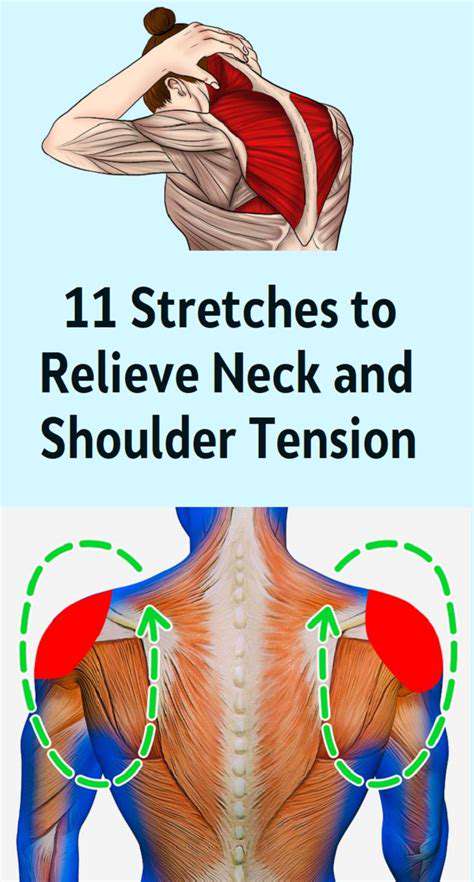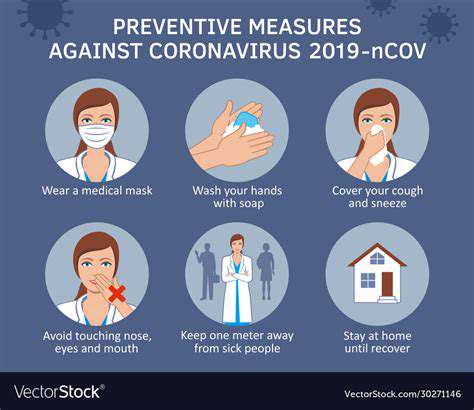Estratégias Eficazes para Aliviar a Dor Crônica no Pescoço
As Causas Comuns da Dor no Pescoço
O Papel da Postura Incorreta
A postura incorreta é um dos principais fatores contribuidores para a dor crônica no pescoço. Muitas pessoas passam longas horas encurvadas sobre computadores, smartphones ou tablets, o que pode levar a uma condição conhecida como "pescoço tecnológico". Esta postura de cabeça para frente provoca uma tensão excessiva nos músculos do pescoço e nas estruturas circundantes, tornando-os mais propensos à dor e ao desconforto.
Com o tempo, a má postura pode também afetar o alinhamento da coluna vertebral, levando a desequilíbrios musculares e aumento da tensão no pescoço. Abordar a postura através de ajustes ergonômicos no trabalho e estar atento à posição do corpo pode aliviar significativamente a dor no pescoço.
Práticas simples, como fazer pausas regulares para alongar e reposicionar-se, podem combater os efeitos negativos da má postura. Fortalecer os músculos que sustentam uma boa postura também pode ser benéfico na redução da dor no pescoço a longo prazo.
Lesões e Tensão
Lesões resultantes de acidentes, quedas ou atividades esportivas podem levar a dor aguda no pescoço, que pode se desenvolver em uma condição crônica se não for tratada adequadamente. A chicotada cervical é uma lesão comum que ocorre durante acidentes de carro, resultando em um movimento rápido de vai-e-vem do pescoço que pode tensionar músculos e ligamentos.
Tensão repetitiva de certas atividades físicas ou tarefas relacionadas ao trabalho também pode contribuir para a dor no pescoço. Tarefas que exigem movimento repetitivo ou manter o pescoço em uma posição incómoda podem causar microlesões nos músculos do pescoço, levando ao desconforto e à dor ao longo do tempo.
É crucial buscar orientação médica e reabilitação adequada após uma lesão para prevenir efeitos a longo prazo. Fisioterapia, cuidados quiropráticos ou terapia de massagem podem ajudar na recuperação de lesões agudas e fornecer estratégias para prevenir futuras dores no pescoço.
Dicas Práticas para Alívio da Dor no Pescoço

Entendendo as Causas da Dor Crônica no Pescoço
A dor crônica no pescoço pode surgir de vários fatores, incluindo má postura, lesões e desgaste relacionado à idade. Identificar a causa subjacente é crucial para um tratamento eficaz. Sem abordar a questão raiz, as medidas de alívio da dor podem fornecer apenas resultados temporários.
Algumas causas comuns incluem tensão muscular devido a movimentos repetitivos, doença degenerativa do disco e até mesmo estresse. Entender esses fatores pode capacitar os indivíduos a fazer mudanças no estilo de vida que promovam alívio a longo prazo.
Exercícios de Alongamento e Fortalecimento
Incorporar exercícios específicos de alongamento e fortalecimento à sua rotina diária pode reduzir significativamente a dor no pescoço. Alongamentos suaves podem aumentar a flexibilidade, enquanto exercícios de força ajudam a estabilizar os músculos do pescoço e dos ombros.
Yoga e Pilates são opções excelentes que não apenas se concentram na flexibilidade, mas também promovem a consciência corporal geral. A prática regular pode levar a uma postura melhor e a um desconforto reduzido ao longo do tempo.
Ajustes Ergonômicos no Seu Espaço de Trabalho
Fazer ajustes ergonômicos no seu espaço de trabalho pode aliviar a tensão no pescoço. Garantir que o monitor do computador esteja ao nível dos olhos e que sua cadeira ofereça suporte adequado são mudanças fundamentais que podem fazer uma grande diferença.
Considere investir em ferramentas como um fone de ouvido para chamadas telefônicas ou uma mesa ajustável para incentivar o movimento ao longo do dia. Esses ajustes não apenas reduzem a dor no pescoço, mas também aumentam a produtividade.
Buscando Ajuda Profissional
Quando a dor crônica no pescoço persiste, buscar ajuda profissional é essencial para um diagnóstico e tratamento adequados. Quiropráticos, fisioterapeutas e massagistas podem fornecer abordagens personalizadas para aliviar a dor.
Em alguns casos, intervenções médicas como injeções ou cirurgia podem ser necessárias. Consultar um profissional de saúde garante que você receba o cuidado apropriado com base na sua situação única.
Quando Procurar um Profissional Médico

Entendendo Quando a Dor no Pescoço Torna-se uma Preocupação
A dor no pescoço é uma queixa comum experimentada por muitas pessoas, mas é essencial reconhecer quando esse desconforto justifica a intervenção profissional. Dor severa ou desconforto persistente que interfere nas atividades diárias é frequentemente um motivo para consultar um profissional da saúde.
Além disso, se a dor no pescoço é acompanhada de sintomas como febre, náusea ou distúrbios visuais, pode indicar uma condição subjacente mais séria que requer atenção imediata.
Técnicas de Auto-Cuidado para o Manejo Inicial
Antes de procurar orientação médica, existem várias estratégias de auto-cuidado que os indivíduos podem tentar para aliviar dores leves no pescoço. Técnicas como alongamentos suaves e a aplicação de calor podem ser eficazes na redução da tensão e do desconforto.
Usar medicamentos analgésicos de venda livre como ibuprofeno ou paracetamol também pode proporcionar alívio temporário, permitindo que os indivíduos gerenciem seus sintomas de maneira mais eficaz.
Importância da Postura e da Ergonomia
Manter uma boa postura é crucial na prevenção e alívio da dor crônica no pescoço. Estar atento à ergonomia, especialmente em ambientes de trabalho, pode impactar significativamente a saúde do pescoço.
Ajustar a altura das telas dos computadores e utilizar cadeiras de suporte pode ajudar a minimizar a tensão. Pausas regulares para alongar e trocar de posição também são igualmente importantes para prevenir a acumulação de tensão nos músculos do pescoço.
Terapia Física e Seus Benefícios
Para aqueles que experimentam dor crônica no pescoço, a terapia física pode ser uma solução eficaz. Um fisioterapeuta pode desenvolver um programa de exercícios personalizado com o objetivo de fortalecer os músculos do pescoço e melhorar a flexibilidade.
Participar de sessões regulares de terapia física pode não apenas proporcionar alívio imediato, mas também equipar os indivíduos com estratégias de longo prazo para gerenciar sua dor e prevenir novas crises.
Reconhecendo Sinais que Requerem Atenção Imediata
Embora a maioria das dores no pescoço possa ser tratada de forma conservadora, certos sinais de alerta devem levar à avaliação médica imediata. Se a dor no pescoço for súbita e incapacitante, ou se seguir uma lesão, pode indicar uma condição séria, como uma fratura ou dano aos nervos.
Outros sintomas preocupantes incluem dormência ou fraqueza nos braços ou mãos, o que pode sugerir envolvimento nervoso. A atenção médica imediata pode ser crítica para prevenir complicações adicionais e garantir que o tratamento apropriado seja administrado.







